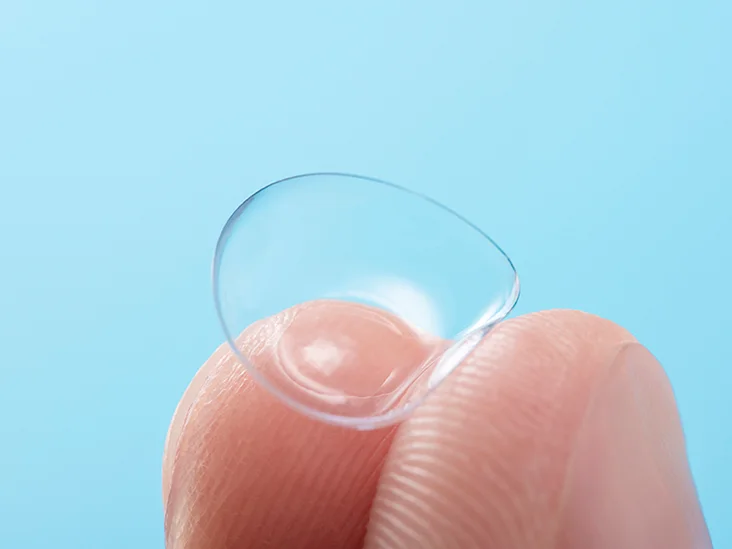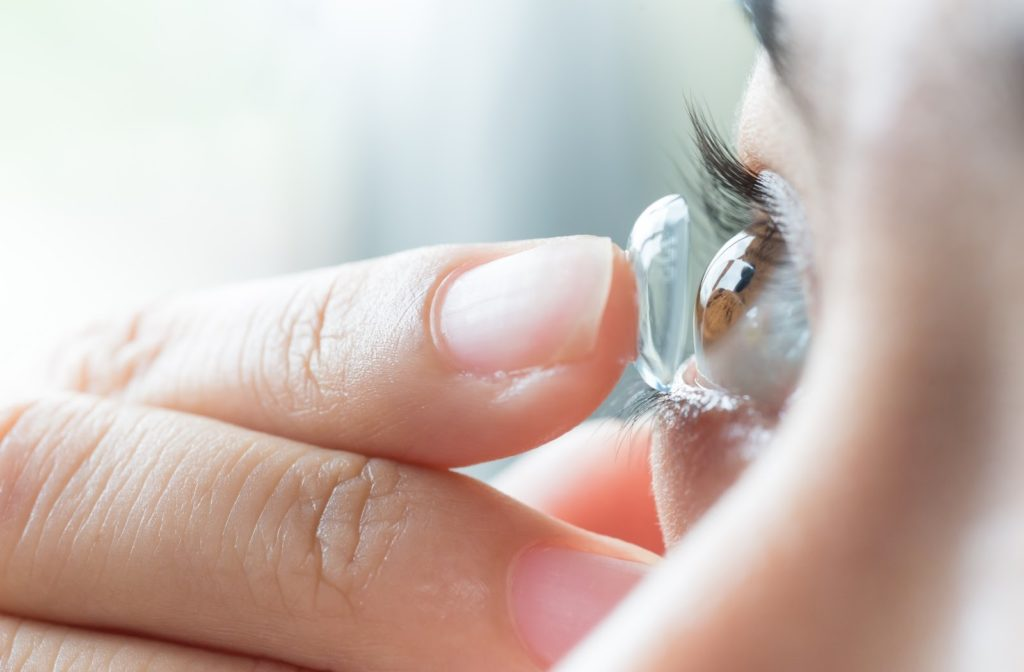Best Contact Lenses for Dry Eyes
Jun 22, 2023 By Daniel Jackson
You know how uncomfortable it can be if you suffer from dry eyes. That burning, itching feeling that won't go away can make everyday tasks challenging and often frustrates us.
Fortunately, there is hope when it comes to alleviating the symptoms of dry eyes - contact lenses! But with so many different types, which is right for your eyes?
In this blog post, we'll delve into the best contact lens options for those dealing with dry eye syndrome - helping you get back in control and comfortable in no time!
What is dry eye?
A dry eye is a condition in which the eyes do not produce enough tears or fluids to keep the eye surface lubricated and healthy. This can cause pain, irritation, blurry vision, redness, and sensitivity to light.
Contact lens options

Consider exploring various contact lens types suitable for your dry eye condition. You should consider examining alternatives depending on the cause of your condition.
Soft lenses:
Soft contact lenses are the most popular and offer better comfort than other types. These lenses come in various materials, including silicone hydrogel lenses, allowing more oxygen to pass through to your eyes. Additionally, they can provide extended wear for up to 30 days or even monthly replacement cycles.
Rigid gas permeable (RGP) lenses:
RGP contact lenses are rigid and provide excellent vision correction. They allow more oxygen to pass through the lens, which benefits those with dry eyes. Additionally, they can be replaced less frequently than soft lenses, making them a convenient option.
Hybrid contact lenses:
Hybrid contact lenses combine the comfort of soft contacts with the vision correction of RGP lenses. These lenses can be a good option for those with dry eyes who need more oxygen and comfort than traditional soft contacts provide.
Finally, several specialty contact lenses are specifically designed for those with dry eye syndrome. These include scleral contact lenses and larger-diameter gas-permeable lenses designed to vault over the corneal surface and provide a larger reservoir of tears.
How to Choose the Best Contact Lenses for You

Medical News Today selects the most suitable contacts for dry eyes, using the following criteria whenever possible.
Food and Drug Administration (FDA) approval:
We researched lenses that have received the approval of the Food and Drug Administration (FDA). This ensures that the lenses are safe to use and will not cause additional irritation or problems for people with dry eyes.
Manufacturer's warranty:
Manufacturers should offer a warranty on their contact lenses if they do as directed. This guarantees replacement or refund if the lenses are damaged or caucuses allergic reactions.
Cost:
Affordability is a key factor when selecting contact lenses for dry eyes. We consider products that offer great value for money.
User reviews:
We read user testimonials and reviews to ensure people with dry eyes were satisfied with their chosen contact lenses. Customer feedback can be a great way to hear from those who have already used the lenses.
You can find the best contact lenses for dry eyes by researching various options and considering user reviews and costs. You can enjoy improved comfort and vision clarity with the right product choice.
Pros and Cons of Silicone Hydrogel Lenses
Silicone hydrogel contact lenses are a popular type of contact for people with dry eyes because they allow more oxygen to reach the eye and retain moisture better than other lenses. However, there are some pros and cons associated with using silicone hydrogel lenses.
Pros:
- Increased oxygen permeability allows for healthier eyes
- Retain moisture better than other types of lenses
- More comfortable to wear for longer periods
Cons:
- Difficult to adjust vision in low light conditions
- Can be more costly than other contact lenses
- Susceptible to deposits that can cause irritation and discomfort.
Benefits of Using Toric Contact Lenses For Astigmatism
Toric contact lenses are specially designed to correct astigmatism, which causes blurred vision.
They have two powers instead of one, and each lens's curvatures are different to compensate for the irregularly shaped cornea associated with astigmatism—ensuring clear vision. In addition to correcting astigmatism, toric contact lenses also provide other benefits, such as:
Improved vision:
Since the two powers of a toric contact lens are specifically designed to correct astigmatism, these lenses help produce much sharper and clearer vision than traditional spherical lenses.
Comfortability:
Toric contact lenses provide more comfort than glasses due to their lightweight design. They also fit better onto the eye, preventing discomfort from traditional contact lenses.
Cost-efficiency:
Toric contact lenses are more cost-effective than glasses because they last longer and require less frequent replacements. Plus, they don't need to be adjusted as often as glasses when focusing on an object in the distance.
Tips for Taking Proper Care Of Your Contact Lenses
When it comes to contact lenses, proper care, and maintenance are essential to ensure the health of your eyes. Here are some tips to help you get the most out of your contact lenses:
- Always use fresh cleaning solutions when handling contacts; never reuse old solutions or mixes.
- Clean the lens and case with contact lens cleaner daily before and after use.
- Rinse the lenses with a contact lens solution when handling them, especially before putting them in your eyes.
- Dispose of disposable lenses on time; following the replacement schedule prescribed by your eye doctor is important.
- Keep your contact lenses away from water, as water can contain potentially harmful contaminants that may injure your eyes.
- Avoid wearing contact lenses too long, which can cause dryness and discomfort.
- Choose the best contact lenses for dry eyes to ensure maximum comfort when wearing them. The most suitable lens material will depend on your prescription and lifestyle, so it's best to consult your eye doctor before purchasing.
FAQs
Can I wear contacts if I have dry eyes?
Yes, you can wear contact lenses if you have dry eyes. Specific types of contacts are designed to help alleviate the discomfort and symptoms associated with dry eye syndrome.
Speak to your optometrist or ophthalmologist about the best contact lenses for your needs. They can advise which type of lens will give you the most relief from your symptoms.
Do daily contacts work better for dry eyes?
Daily contact lenses are a great option for those suffering from dry eyes. They can help reduce irritation and relieve the symptoms associated with dry eye syndrome.
Daily contacts create a barrier to protect your eyes while allowing oxygen to flow freely so that your eyes remain moisturized and comfortable throughout the day.
Which contact lens brand is the best?
The best contact lens brand for dry eyes depends on several factors, including the severity of your condition, budget, and lifestyle. Speak to your optometrist or ophthalmologist to determine which brand best fits you.
Many different brands offer lenses specifically designed for dry eye sufferers, so getting professional advice is important to determine which is right for you.
Conclusion
In conclusion, it is important to consult your optometrist for the best contact lenses for dry eyes that fit your needs. Many options are available today, so find a lens that meets your requirements. With ongoing care and maintenance, you can ensure your eyes remain healthy and comfortable when wearing contact lenses.







